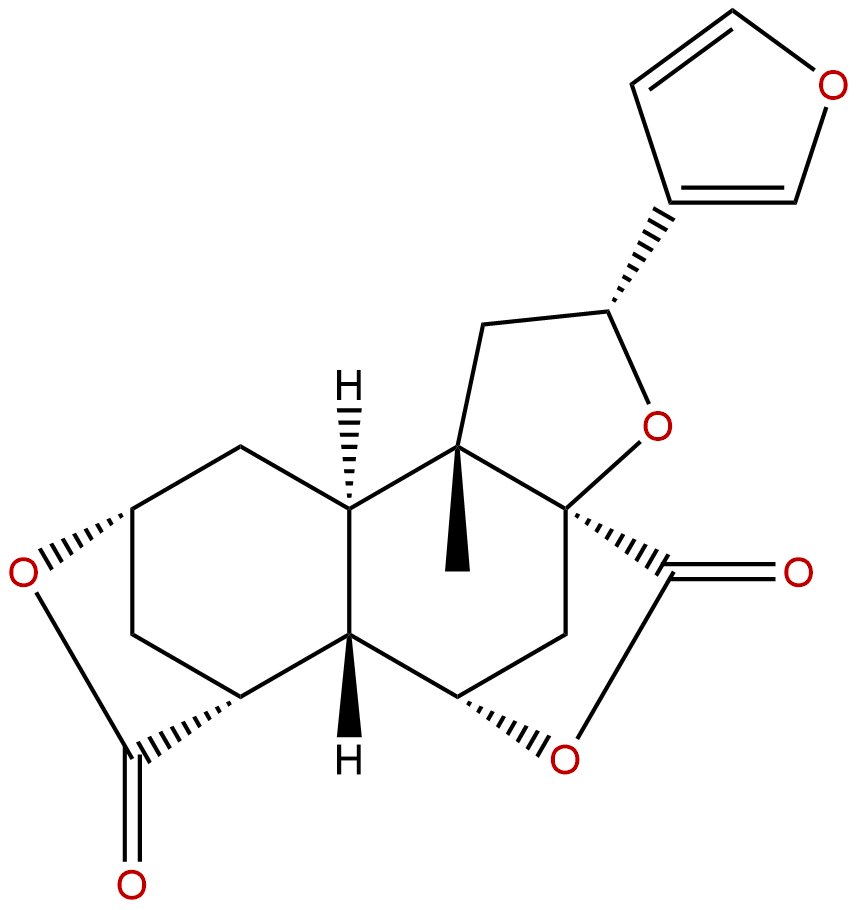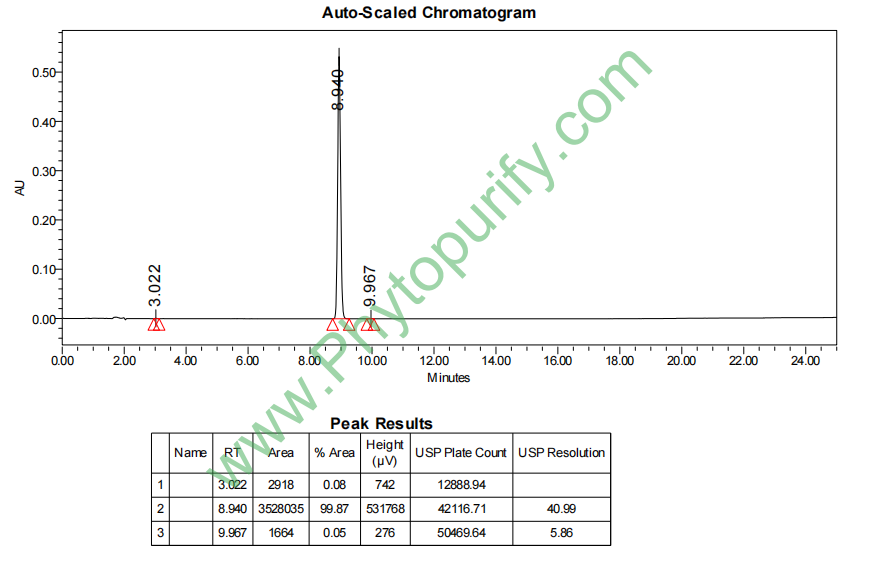
Diosbulbin BCAS No.:20086-06-0
|
||||||||||
 |
|
|
||||||||

| Catalogue No.: | BP0502 |
| Formula: | C19H20O6 |
| Mol Weight: | 344.363 |
Synonym name:
Catalogue No.: BP0502
Cas No.: 20086-06-0
Formula: C19H20O6
Mol Weight: 344.363
Botanical Source: Dioscorea bulbifera (air potato)
Purity: 95%~99%
Analysis Method: HPLC-DAD or/and HPLC-ELSD
Identification Method: Mass, NMR
Packing: Brown vial or HDPE plastic bottle
Can be supplied from milligrams to grams.
For Reference Standard and R&D, Not for Human Use Directly.
Inquire for bulk scale.
Description:
Diosbulbin B has potential anti-tumor effects which may be related to influencing the immune system for the first time, it also exhibits potential hepatotoxicity.
References:
J Zhejiang Univ Sci B. 2014 Jun;15(6):540-7.
Ferulic acid prevents liver injury and increases the anti-tumor effect of diosbulbin B in vivo.
METHODS AND RESULTS:
The present study is designed to investigate the protection by ferulic acid against the hepatotoxicity induced by Diosbulbin B and its possible mechanism, and further observe whether ferulic acid augments Diosbulbin B-induced anti-tumor activity. The results show that ferulic acid decreases Diosbulbin B-increased serum alanine transaminase/aspartate transaminase (ALT/AST) levels. Ferulic acid also decreases lipid peroxide (LPO) levels which are elevated in Diosbulbin B-treated mice. Histological evaluation of the liver demonstrates hydropic degeneration in Diosbulbin B-treated mice, while ferulic acid reverses this injury. Moreover, the activities of copper- and zinc-containing superoxide dismutase (CuZn-SOD) and catalase (CAT) are decreased in the livers of Diosbulbin B-treated mice, while ferulic acid reverses these decreases. Further results demonstrate that the mRNA expressions of CuZn-SOD and CAT in Diosbulbin B-treated mouse liver are significantly decreased, while ferulic acid prevents this decrease. In addition, ferulic acid also augments Diosbulbin B-induced tumor growth inhibition compared with Diosbulbin B alone.
CONCLUSIONS:
Taken together, the present study shows that ferulic acid prevents Diosbulbin B-induced liver injury via ameliorating Diosbulbin B-induced liver oxidative stress injury and augments Diosbulbin B-induced anti-tumor activity.
Hum Exp Toxicol. 2014 Jul;33(7):729-36.
Diosbulbin B-induced liver injury in mice and its mechanism.
Dioscorea bulbifera L., a commonly used medicinal plant in China, is reported to induce hepatotoxicity. The present study is undertaken to investigate the hepatotoxicity induced by Diosbulbin B(DB), a diterpene lactone isolated from D. bulbifera L., and to further explore its underlying mechanism.
METHODS AND RESULTS:
DB was administered to mice at the doses of 0, 16, 32, and 64 mg/kg once daily for 12 consecutive days. Liver injury induced by Diosbulbin B was evidenced by the increased activity of serum alanine aminotransferase (ALT), aspartate aminotransferase (AST), and alkaline phosphatase (ALP). Liver histological evaluation showed that the mice treated with Diosbulbin B exhibited liver damage with the swelling of hepatocytes. Further results showed that the amount of malondialdehyde (MDA) in the liver was increased in mice treated with Diosbulbin B, while the glutathione amount and the enzymatic activity of glutathione peroxidase (GPx), glutathione-S-transferase (GST), copper/zinc-superoxide dismutase (CuZn-SOD), manganese-SOD (Mn-SOD), and catalase (CAT) were all decreased. Diosbulbin B also decreased the gene expression of CuZn-SOD and CAT.
CONCLUSIONS:
Taken together, our results indicate that oral administration of Diosbulbin B for 12 consecutive days can lead to the oxidative stress liver injury in mice.
HPLC of Diosbulbin B
